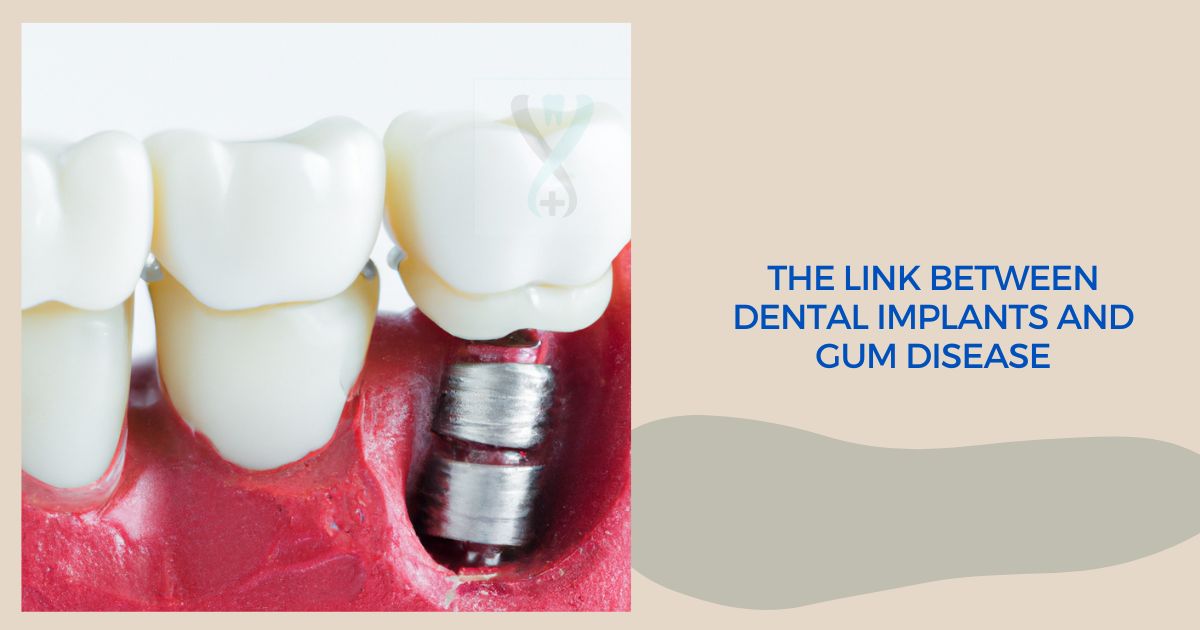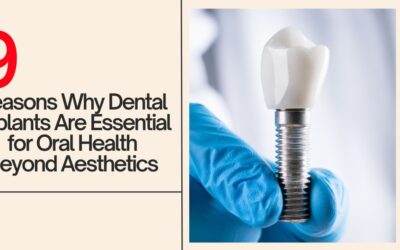Dental implants are the best and effective way to replace missing teeth. They are small titanium posts that are surgically inserted into the jawbone, serving as the roots of artificial teeth. However, there is a link between dental implants and gum disease that must be considered before undergoing the procedure.
Gum diseases like Gingivitis and Periodontitis are caused due to the infection of the gums and the surrounding tissue that supports the teeth. It is caused by the buildup of plaque and tartar, which can lead to inflammation, bleeding, and eventually, tooth loss. If gum disease is present before the placement of dental implants, it can lead to implant failure.
The success of dental implants relies heavily on the health of the gums and jawbone. Before the procedure, the patient’s gums are ensured to be in good condition by the dentist. As part of the initial phase in getting the dental implants there should be no signs of inflammation or infection in the gums around the implant site. If gum disease is present, it must be treated before the implants can be placed. This is because the disease can cause bone loss in the jaw, which can affect the stability and longevity of the implant.
After the dental implants are placed, they must be cleaned and maintained just like natural teeth to prevent the buildup of plaque and tartar underneath the implants in the gum region. If gum disease is present, it can lead to implant failure by causing inflammation and infection around the implant site. This can cause the implant to become loose and may require removal.
A good oral hygiene routine, which includes regular visits to the dentist, and maintaining the health of the gums and teeth is required. If you have gum disease or are at risk of developing it, it is essential to show it to your dentist and discuss the best course of treatment before undergoing dental implant surgery. The dentist will anyways provide you with first hand information on what to do if you have gum diseases before you want your dental implants.
In conclusion, by taking the necessary steps to maintain the health of the gums and teeth, dental implants can be a successful and long-lasting solution after you have addressed your missing teeth problem.




